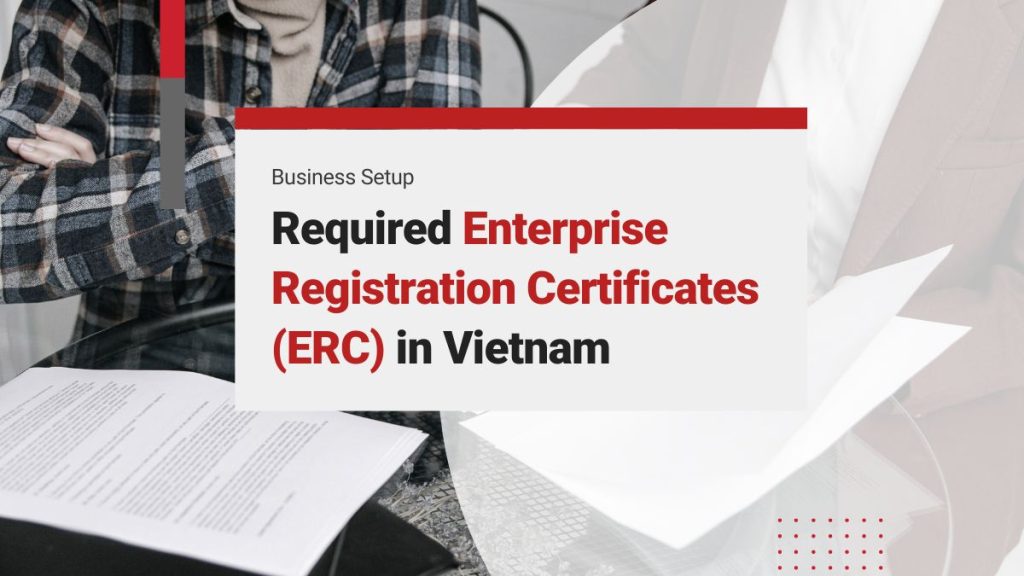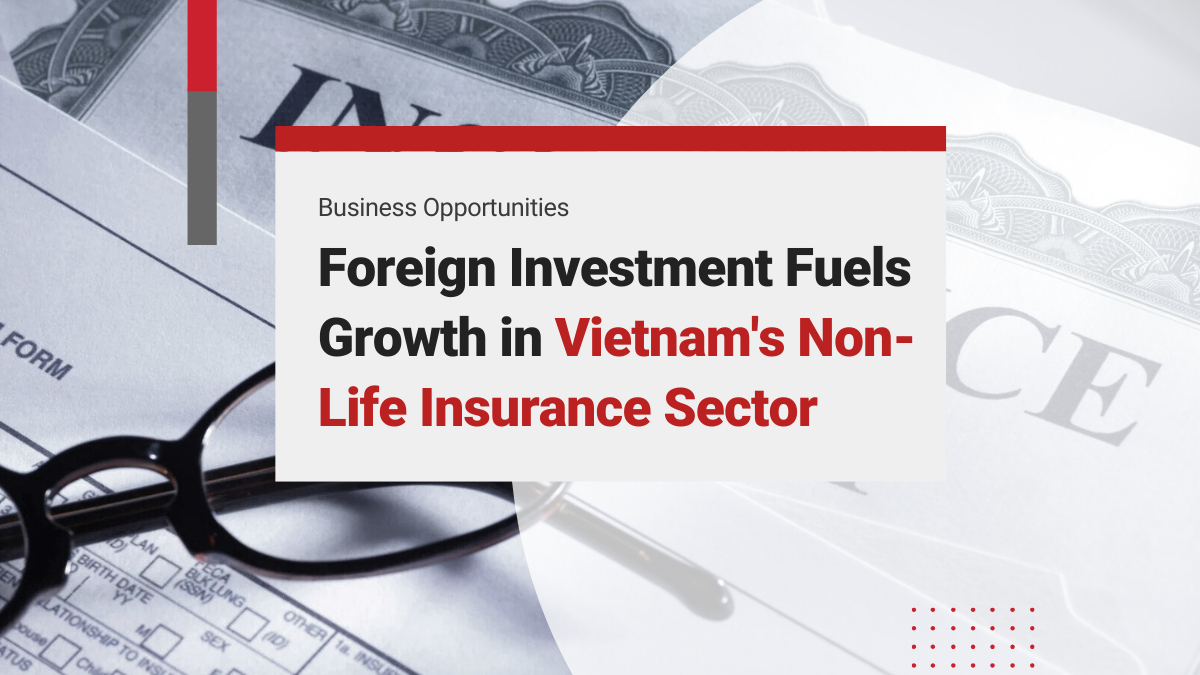Vietnam’s economic growth has surged in recent years, attracting foreign investors eager to establish a foothold in this dynamic Southeast Asian market. Vietnam’s GDP growth reached an impressive 7.1% in 2024 and is projected to grow by 6.2% in 2025 according to OECD forecasts, with the World Bank estimating a 6.8% growth rate for 2025. With professional company formation services readily available, setting up and managing a business in Vietnam has become more streamlined and compliant with local regulations
Foreign direct investment (FDI) into Vietnam surged dramatically in the first five months of 2025, reaching nearly $18.4 billion – a remarkable 51% increase year-on-year. This includes over $7.02 billion from 1,549 newly licensed projects and $8.51 billion from capital additions to existing projects.
The allure of tapping into Vietnam’s expanding economy is compelling, offering exciting prospects for those looking to set up wholly-owned foreign companies. However, obtaining the Enterprise Registration Certificate (ERC) can be intricate and daunting. For those considering a wholly owned entity, it helps to review the company formation process in parallel with ERC/IRC requirements so the sequence of approvals and documents is clear.
This article aims to provide information on the Enterprise registration certificate required for foreign companies in Vietnam. By providing a clear and detailed guide, we streamline the incorporation journey, helping investors efficiently manage the process and capitalize on the abundant opportunities within Vietnam’s thriving economy.
Enterprise Registration Certificate (ERC) / Business Registration Certificate in Vietnam
Two critical licenses are paramount for foreign businesses in Vietnam: the Investment Registration Certificate (IRC) and the Enterprise Registration Certificate (ERC). The IRC serves as an official endorsement from the Vietnamese government, sanctioning foreign investment projects. The ERC, conversely, formalizes the establishment of the business entity, granting it legal recognition to operate within Vietnam.
As of 2025, Vietnam has implemented significant digital transformation reforms to streamline business registration processes. Starting July 1, 2025, all enterprises must use organizational electronic identification (eID) accounts via the VNeID application for online administrative procedures, replacing previous business accounts on the National Business Registration Portal.
The ERC acts as a company’s official identification document, issued by the Department of Planning and Investment. It encompasses vital details such as:
- Enterprise Name and Code: The company’s designated Vietnamese name and a unique identification code.
- Head Office Address: The registered location of the company’s primary office.
- Legal Representative Information: Details of the person authorized to represent the company, including their nationality and legal documents.
- Member Information: A list of company shareholders or members, outlining their nationalities and investment contributions.
- Charter Capital: The initial investment amount pledged by the company’s founders.
Find out more about Industry Capital & Deposit Requirements in Vietnam!
The ERC application process can be completed electronically through the National Enterprise Registration Portal or submitted physically at the Business Registration Office. The authorities meticulously review the application for accuracy, typically issuing the ERC within three working days upon approval. However, from July 1, 2025, businesses must transition to using eID accounts through the VNeID app for all online procedures, as existing business accounts on the portal will no longer be valid. For a smooth application process, foreign investors can leverage the expertise of business registration agencies or legal professionals.
Initial Tax Registration and Bank Account Setup
- Tax Registration: Integral to fulfilling tax obligations and conducting business activities, tax registration necessitates the submission of specific documents, including the application form and the company’s ERC.
- Bank Account Setup: Though not mandatory by law, establishing a corporate bank account simplifies tax payments and facilitates financial transactions. The specific requirements for opening a bank account may vary depending on the chosen financial institution.
Other Required Business Licenses in Vietnam
Certain industries necessitate additional permits beyond the IRC and ERC. In 2025, Vietnam’s business licensing fee structure is organized into 3 specific levels based on charter capital: Level 1 (3,000,000 VND/year for organizations with charter capital over 10 billion VND), Level 2 (2,000,000 VND/year for organizations with charter capital up to 10 billion VND), and Level 3 (1,000,000 VND/year for branches, representative offices, and other economic organizations).
These may include special consumption tax licenses for specific products like alcohol or tobacco, environmental protection licenses for industries impacting the environment, and import/export licenses for companies engaged in international trade.
Vietnam has also passed the world’s first dedicated Law on Digital Technology Industry in June 2025, which will come into effect on January 1, 2026, introducing new regulatory frameworks for digital businesses, AI regulation, and digital assets.
Company Registration Procedure
The company registration process entails a series of well-defined steps:
- Registration Dossier Submission: A complete application package containing all necessary documents must be submitted to the designated registration authority.
- Document Review: The authorities meticulously examine the submitted documents for completeness and compliance within a designated time frame.
- Notification of Results: If the application is rejected, the authorities provide a written explanation outlining the reasons and any required corrections.
The first quarter of 2025 showed positive trends in business registration, with 36,400 new businesses registered – maintaining parity with 2024 levels while showing a 1.2-fold increase compared to the 2017-2023 average. Notably, newly-registered capital also rose by 1.5% year-on-year.
To ensure a smooth and efficient registration process, foreign investors are encouraged to consult with experienced company formation agencies or legal advisors who possess in-depth knowledge of Vietnamese regulations and can provide guidance throughout the process.
Application Documents for Vietnamese Company Registration
Investment Registration Certificate (IRC) Application
Foreign investors must prepare a comprehensive application package for the IRC, including:
- A proposal outlining the investment project.
- Legal documents of the investors (individuals or corporations).
- Proof of the investors’ financial capabilities.
- Documentation pertaining to the proposed project location and land use.
- Details regarding any technologies employed in the project (if applicable).
- Any other supplementary documents mandated by Vietnamese law.
Read More: Easy Guide to Obtaining an Investment Registration Certificate (IRC) in Vietnam
Enterprise Registration Certificate (ERC) Application
The specific documents required for the ERC application will vary depending on the chosen business structure. Generally, the necessary documents encompass:
- The application form for enterprise registration.
- The company charter.
- A detailed list of shareholders or company members.
- Legal documents verifying the identities of the shareholders or company members.
- A copy of the recently issued IRC.
- (Optional) A letter of authorization for legal representatives handling the registration process.
Starting from July 1, 2025, enterprises must complete electronic identification (eID) registration through the VNeID app to access online administrative procedures. All existing business accounts on the National Business Registration Portal will expire after June 30, 2025.
Sample Enterprise Registration Certificate (ERC) in Vietnam
The ERC incorporates the following key details:
- The company’s official name and tax identification code.
- The registered address of the company’s headquarters.
- The company’s charter capital.
- The company’s designated business activities (in some cases).
- Information on the legal representatives and company members/shareholders.
- An official signature and seal from the issuing authority.
Need help with a Enterprise Registration Certificate (ERC) in Vietnam? Check out InCorp Vietnam’s Company Formation Services now!
Conclusion
Navigating business registration in Vietnam requires securing two key certificates. The Investment Registration Certificate (IRC) acts as a green light for foreign investors, while the Enterprise Registration Certificate (ERC) formalizes the company’s existence. Both certificates are essential steps to ensure a smooth and compliant business establishment in Vietnam.
With Vietnam’s manufacturing sector accounting for 24% of national GDP and attracting 61.9% of total FDI in Q1 2025, and the government targeting the development of 150,000 digital technology enterprises by 2035, the opportunities for foreign investors continue to expand across traditional and emerging sectors.

clients worldwide

professional staff

incorporated entities in 10 years

compliance transactions yearly
Learn the Right Setup for Business
Expansion in the Vietnam
Frequently Asked Questions
How to check company registration in Vietnam?
- To check company registration in Vietnam, visit the National Business Registration Portal at https://dangkykinhdoanh.gov.vn. You can search by company name, business registration number, or tax code to view key details such as legal status, registered address, and business lines.
How to register a business license in Vietnam?
- To register a business license in Vietnam, foreign investors must first obtain an Investment Registration Certificate (IRC) from the Department of Planning and Investment (DPI). After that, they must apply for an Enterprise Registration Certificate (ERC), which serves as the business license, by submitting the required documents such as company charter, list of shareholders, and legal representative information. Once the ERC is issued, the company must complete post-licensing steps, including tax registration and opening a bank account. The entire process typically takes 30–45 working days, depending on the business type.
What Is Erc Certificate
- An ERC certificate is a document issued under the Employee Retention Credit (ERC) program, confirming an employer's eligibility for tax credits provided by the IRS for retaining employees during the COVID-19 pandemic. It supports claims for refundable tax credits on qualified wages.
What is the difference between IRC and ERC in Vietnam?
- In Vietnam, the Investment Registration Certificate (IRC) and the Enterprise Registration Certificate (ERC) are two separate legal documents required for foreign investors. The IRC is issued by the Department of Planning and Investment (DPI) and grants permission for foreign investment projects, outlining investment capital, project scope, and duration. The ERC, on the other hand, registers the legal existence of the company and includes details such as the company name, address, legal representative, and business lines. Foreign-invested companies typically need to obtain the IRC before applying for the ERC.






